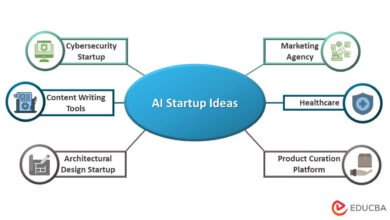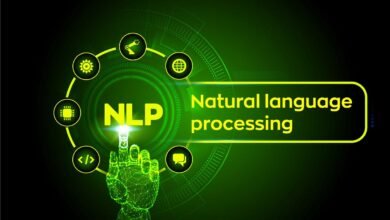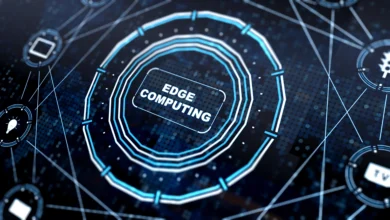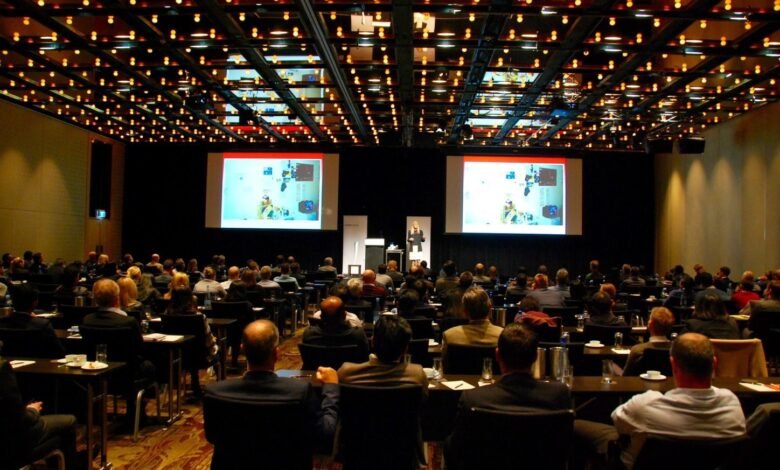
Conferences Every Tech Professional landscape continues to evolve at breakneck speed, making it essential for tech professionals to stay ahead of the curve through continuous learning and networking. AI conferences have become the cornerstone of professional development in this rapidly advancing field, offering unparalleled opportunities to connect with industry leaders, discover cutting-edge innovations, and gain insights that can transform careers and businesses alike.
In 2025, the machine learning conference scene is more vibrant than ever, with events spanning from intimate workshops focused on specific AI applications to massive international gatherings featuring thousands of participants. These tech conferences serve as crucial hubs where researchers, developers, entrepreneurs, and decision-makers converge to share knowledge, forge partnerships, and shape the future of artificial intelligence.
For tech professionals seeking to advance their careers, attending the right AI conferences can provide direct access to breakthrough technologies, emerging trends, and the thought leaders driving innovation. Whether you’re a seasoned data scientist, an AI developer, or a business executive looking to implement AI solutions, these events offer structured learning opportunities that can accelerate your understanding of complex topics like neural networks, natural language processing, and computer vision.
The networking opportunities at premier artificial intelligence conferences are invaluable, often leading to career opportunities, collaborative projects, and business partnerships that wouldn’t be possible through online interactions alone. From hands-on workshops to keynote presentations by industry pioneers, these events provide immersive experiences that can significantly impact professional growth and technical expertise in the rapidly evolving world of artificial intelligence.
The Importance of AI Conferences for Professional Development
Building Essential Industry Connections
Professional networking at AI conferences creates opportunities that extend far beyond traditional business card exchanges. These events facilitate meaningful connections between tech professionals working on similar challenges, potential collaborators on machine learning projects, and industry veterans willing to share their expertise. The concentrated environment of artificial intelligence conferences allows for focused discussions about technical innovations, career opportunities, and industry trends that shape the future of AI development.
Technology conferences serve as melting pots where diverse perspectives converge, enabling AI professionals to understand how their work fits into broader industry contexts. The relationships formed at these events often evolve into mentorships, partnerships, or even job opportunities that can significantly impact career trajectories in the competitive AI industry.
Staying Current with Rapidly Evolving Technologies
The artificial intelligence field advances so quickly that what’s cutting-edge today may be obsolete within months. AI conferences provide structured environments where tech professionals can absorb the latest developments in machine learning, deep learning, natural language processing, and computer vision. These events often feature first-look demonstrations of emerging technologies and research findings that haven’t yet reached mainstream publications.
Conference speakers typically include researchers from leading institutions and developers from major tech companies who share insights about future directions in AI development. This insider knowledge helps AI professionals anticipate market trends, prepare for upcoming technological shifts, and position themselves strategically within their organizations and the broader industry.
Access to Hands-on Learning Opportunities
Many AI conferences incorporate practical workshops, coding sessions, and tutorial tracks that provide hands-on experience with new tools, frameworks, and methodologies. These interactive elements complement theoretical presentations and offer tech professionals immediate opportunities to apply newly acquired knowledge to real-world scenarios.
The workshop format at machine learning conferences often includes guided implementations of algorithms, exploration of new software libraries, and collaborative problem-solving exercises that enhance technical skills while building professional relationships with peers facing similar challenges.
Premier International AI Conferences
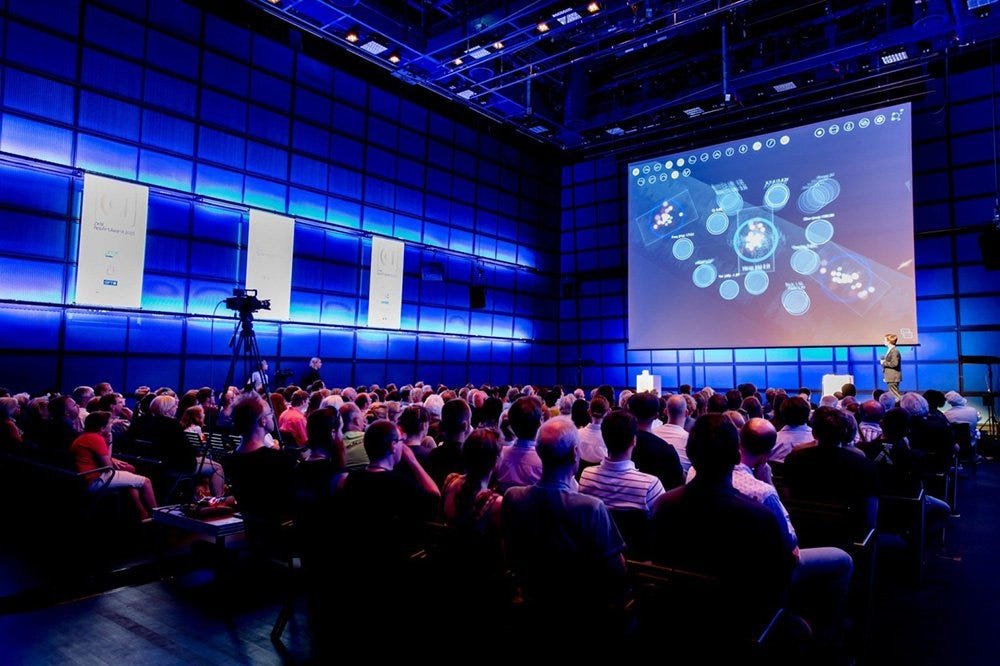
NeurIPS (Conference on Neural Information Processing Systems)
NeurIPS stands as the most prestigious machine learning conference globally, attracting over 10,000 researchers, practitioners, and industry leaders annually. This artificial intelligence conference showcases breakthrough research in neural networks, machine learning theory, and applied AI solutions across multiple domains.
The conference features a rigorous peer-review process that ensures only the highest quality research presentations, making it an essential venue for AI professionals seeking exposure to cutting-edge developments. NeurIPS workshops cover specialized topics ranging from interpretable machine learning to AI for social good, providing diverse learning opportunities for tech professionals at all career levels.
Networking sessions at NeurIPS facilitate connections between academic researchers and industry practitioners, often leading to collaborative projects that bridge the gap between theoretical research and practical applications. The conference’s poster sessions create informal environments where AI developers can discuss technical details and share implementation experiences.
International Conference on Machine Learning (ICML)
ICML represents another cornerstone event in the machine learning conference ecosystem, emphasizing both theoretical foundations and practical applications of artificial intelligence. The International Conference on Machine Learning (ICML) is the premier gathering for artificial intelligence professionals, globally renowned for presenting and publishing progressive research on all aspects of machine learning.
The conference attracts data scientists, researchers, and AI engineers from academia and industry, creating a unique environment where theoretical breakthroughs meet real-world implementation challenges. ICML tutorials provide comprehensive introductions to emerging areas of machine learning, making complex topics accessible to tech professionals from diverse backgrounds.
Industry partnerships at ICML often result in sponsored sessions where major technology companies share their experiences implementing machine learning solutions at scale, providing valuable insights for AI professionals working in enterprise environments.
AAAI Conference on Artificial Intelligence
The AAAI Conference serves as a comprehensive forum for artificial intelligence research and applications, covering the full spectrum of AI technologies from symbolic reasoning to modern deep learning approaches. This tech conference maintains a balance between theoretical research and practical applications, making it valuable for both academic researchers and industry practitioners.
AAAI workshops explore emerging areas of AI research and provide platforms for discussing interdisciplinary applications of artificial intelligence. The conference’s student programs offer mentorship opportunities and career guidance for early-career AI professionals entering the field.
Industry-Specific AI Conferences
Data + AI Summit by Databricks
The Data + AI Summit is a four-day event hosted by Databricks that includes panel discussions, networking opportunities, and training workshops on topics such as data engineering, data governance, and machine learning. This artificial intelligence conference focuses specifically on enterprise implementations of AI and data science solutions.
The summit features practical sessions on machine learning operations, data pipeline optimization, and AI infrastructure scaling, making it particularly valuable for tech professionals working in data-driven organizations. Industry case studies presented at the summit showcase successful AI implementations across various sectors, providing actionable insights for AI developers and data scientists.
AI Hardware & Edge AI Summit (AI Infra Summit)
The AI Hardware & Edge AI Summit has been rebranded as the AI Infra Summit and is the world’s largest and most established AI conference focusing on AI infrastructure. This specialized technology conference addresses the critical intersection of hardware and software in AI systems, covering topics essential for AI engineers working on performance optimization and deployment challenges.
Sessions at the AI Infra Summit explore edge computing solutions, AI accelerator technologies, and optimization techniques for deploying machine learning models in resource-constrained environments. The conference attracts hardware engineers, software developers, and system architects working on the infrastructure that powers modern AI applications.
Computer Vision and Pattern Recognition (CVPR)
CVPR represents the premier computer vision conference, focusing on image processing, pattern recognition, and visual AI applications. This Conferences Every Tech Professional attracts researchers and practitioners working on problems ranging from autonomous vehicle perception to medical image analysis.
The conference features technical sessions on deep learning architectures for visual understanding, neural network optimization for image processing, and emerging applications of computer vision in robotics and augmented reality. Industry exhibitions at CVPR showcase the latest computer vision products and services, providing AI professionals with insights into commercial applications of visual AI technologies.
Emerging and Specialized AI Conferences
The AI Conference 2025
The AI Conference 2025 is a groundbreaking vendor-neutral event brought to you by the creators of MLconf, designed to provide unbiased perspectives on artificial intelligence developments across multiple industries. This tech conference emphasizes practical implementations and real-world case studies rather than purely academic research.
The conference structure includes technical workshops, keynote presentations from industry leaders, and networking sessions specifically designed to facilitate meaningful connections between AI professionals from different sectors. Vendor-neutral content ensures that attendees receive balanced perspectives on AI tools, platforms, and methodologies.
AI for Social Good Conferences
Several specialized AI conferences focus on leveraging artificial intelligence for positive social impact, addressing challenges in healthcare, education, environmental sustainability, and social justice. These events attract tech professionals interested in applying their skills to meaningful problems beyond commercial applications.
Workshop sessions at these conferences explore ethical considerations in AI development, bias mitigation techniques, and frameworks for ensuring artificial intelligence benefits all members of society. Collaboration opportunities arise naturally from shared commitment to social impact among attendees.
Robotics and AI Integration Events
The convergence of robotics and artificial intelligence has spawned specialized conferences focusing on autonomous systems, human-robot interaction, and AI-powered automation. These technology conferences attract engineers, researchers, and AI developers working on the intersection of physical and intelligent systems.
Technical presentations cover machine learning applications in robotics, sensor fusion techniques, and neural network architectures designed for real-time robot control. Demo sessions provide hands-on experiences with cutting-edge robotic systems powered by advanced AI algorithms.
Regional and Virtual AI Conferences
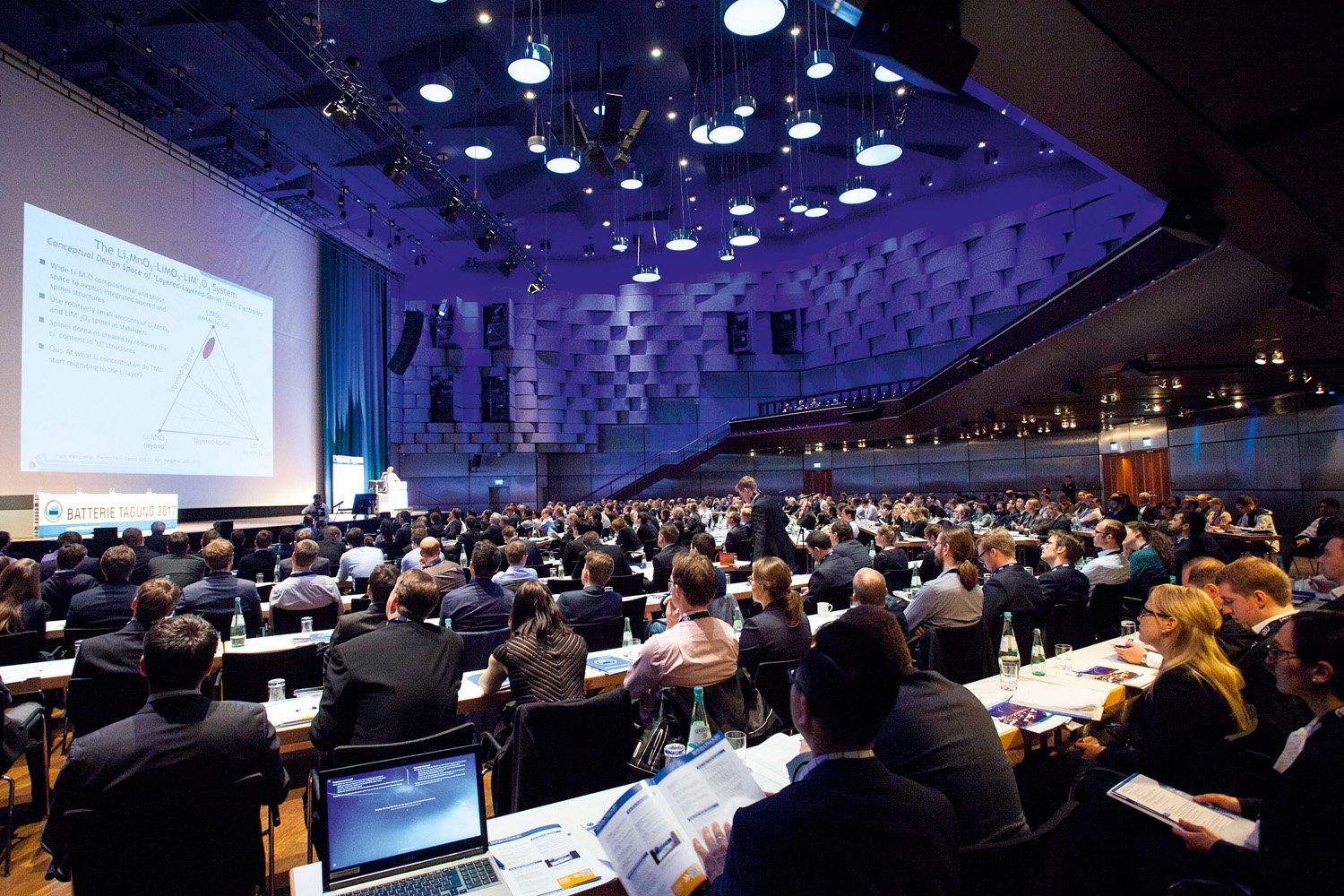
European AI conferences offer unique perspectives on artificial intelligence development within the context of EU regulations, privacy considerations, and cross-cultural applications. Events like ECAI (European Conference on Artificial Intelligence) provide platforms for discussing AI governance, ethical frameworks, and collaborative research initiatives across European institutions.
These tech conferences often emphasize responsible AI development, data protection compliance, and sustainable technology practices that reflect European values and regulatory requirements. Networking opportunities at European events facilitate international collaborations and knowledge exchange between global AI professionals.
Asian AI Summit Events
Asian artificial intelligence conferences showcase rapid AI adoption in manufacturing, finance, and consumer applications across diverse markets. These events highlight unique implementation challenges and innovative solutions developed for Asian markets, including natural language processing for multiple languages and cultural adaptation of AI systems.
Industry partnerships at Asian AI conferences often involve major technology companies based in the region, providing insights into large-scale machine learning implementations and emerging market trends. Cultural considerations in AI development receive particular attention at these events.
Virtual and Hybrid Conference Options
The evolution of virtual conferences has made AI education more accessible to tech professionals regardless of geographic location or travel constraints. These online technology conferences often feature interactive elements like virtual networking rooms, live coding sessions, and collaborative workshops.
Hybrid conference formats combine the benefits of in-person networking with the accessibility of virtual participation, allowing broader participation from the global AI community. Digital platforms used for these events often incorporate AI-powered features like intelligent session recommendations and automated networking facilitation.
Specialized Tracks and Workshops
Machine Learning Operations (MLOps) Workshops
MLOps workshops at AI conferences address the critical challenge of deploying and maintaining machine learning models in production environments. These sessions cover deployment strategies, model monitoring, version control for AI systems, and automation techniques for machine learning pipelines.
Practical exercises in MLOps workshops often involve hands-on experience with industry-standard tools and platforms, providing AI professionals with immediately applicable skills for their work environments. Case studies from successful MLOps implementations offer insights into overcoming common deployment challenges.
Ethics and Responsible AI Sessions
Ethics workshops at artificial intelligence conferences explore frameworks for responsible AI development, bias detection and mitigation, and transparency in algorithmic decision-making. These sessions are increasingly important as AI systems become more prevalent in sensitive applications like healthcare, finance, and criminal justice.
Interactive discussions in ethics sessions often involve scenario-based exercises where tech professionals work through ethical dilemmas and develop strategies for implementing responsible AI practices in their organizations. Policy discussions help attendees understand regulatory trends and compliance requirements.
Industry Application Deep Dives
Specialized tracks focusing on specific industry applications of artificial intelligence provide tech professionals with domain-specific knowledge and networking opportunities. These sessions might explore AI in healthcare, financial technology applications, autonomous vehicles, or industrial automation.
Expert panels featuring practitioners from relevant industries share insights about implementation challenges, successful strategies, and future opportunities within their sectors. Technical workshops often include hands-on exercises using industry-specific datasets and tools.
Networking and Career Development Opportunities
Professional Mentorship Programs
Many AI conferences incorporate structured mentorship programs that pair experienced AI professionals with early-career attendees seeking guidance on technical development, career planning, and industry navigation. These programs often extend beyond the conference duration, creating lasting professional relationships.
Mentorship sessions might include one-on-one meetings, group discussions about career challenges, and structured networking activities designed to facilitate meaningful connections. Career development workshops provide practical advice on portfolio building, interview preparation, and professional skill development.
Job Fair and Recruitment Events
Career fairs at AI conferences provide direct access to hiring managers and recruiters from leading technology companies, research institutions, and innovative startups. These events offer tech professionals opportunities to explore new career options and learn about emerging roles in the AI industry.
Company presentations at recruitment events often include technical challenges, team introductions, and detailed discussions about specific job opportunities. Resume review sessions and interview practice workshops help attendees prepare for the competitive AI job market.
Startup Showcase and Innovation Competitions
Startup showcases at artificial intelligence conferences highlight emerging companies developing innovative AI solutions, providing attendees with insights into entrepreneurial opportunities and cutting-edge applications. These events often include pitch competitions and investor meetings.
Innovation challenges encourage AI professionals to collaborate on solving specific problems within tight timeframes, fostering creativity and teamwork while producing practical solutions. Prize competitions add competitive elements that motivate participants to pursue excellence in their technical work.
How to Choose the Right AI Conference
Selecting appropriate AI conferences requires careful consideration of your current career stage, technical interests, and professional objectives. Early-career professionals might prioritize educational content and mentorship opportunities, while experienced AI developers might seek advanced technical sessions and business networking possibilities.
Industry focus represents another important selection criterion, as artificial intelligence conferences vary significantly in their sector emphasis. Healthcare AI events differ substantially from autonomous vehicle conferences in their content, networking opportunities, and attendee demographics.
Budget and Time Considerations
Conference attendance costs include registration fees, travel expenses, accommodation, and opportunity costs of time away from work. Virtual attendance options can significantly reduce expenses while still providing access to educational content and some networking opportunities.
Return on investment calculations should consider both immediate learning outcomes and longer-term career benefits from networking and professional development activities. Early registration discounts and group rates can help reduce costs for teams attending together.
Technical Level and Prerequisites
AI conferences vary considerably in their technical depth and assumed background knowledge. Introductory events welcome tech professionals new to artificial intelligence, while research conferences assume advanced technical knowledge and familiarity with current literature.
Workshop prerequisites often specify required skills or experience levels, helping attendees select appropriate sessions for their backgrounds. Tutorial tracks at major conferences provide structured learning paths for different experience levels.
Maximizing Conference Value
Pre-Conference Preparation
Effective conference preparation involves researching speakers, identifying priority sessions, and setting specific learning and networking objectives. Mobile apps provided by most AI conferences facilitate schedule planning and enable attendee networking before events begin.
Background reading on key topics and speaker profiles enhances understanding of presentations and provides conversation starters for networking activities. Social media engagement with conference hashtags can help identify other attendees with similar interests.
During the Conference
Active participation in sessions through questions, discussions, and workshop activities maximizes learning outcomes and increases visibility within the AI community. Note-taking strategies should balance detailed recording with engagement in live discussions and networking opportunities.
Strategic networking involves targeting specific individuals or organizations aligned with your professional goals while remaining open to unexpected connections and opportunities. Follow-up planning during the conference ensures that new contacts receive timely communication after the event.
Post-Conference Follow-up
Systematic follow-up with new contacts within days of conference conclusion helps maintain momentum from initial meetings and demonstrates professional commitment to new relationships. Social media connections and professional platform outreach provide ongoing channels for relationship development.
Knowledge sharing within your organization through presentations, reports, or informal discussions helps justify conference investments and spreads benefits beyond individual attendees. Action planning based on conference insights ensures that new knowledge translates into practical improvements in your work.
Future Trends in AI Conferences
Hybrid Event Evolution
The future of AI conferences likely involves sophisticated hybrid formats that seamlessly integrate virtual and in-person experiences. Technology platforms are evolving to support more immersive virtual networking, interactive workshops, and collaborative problem-solving activities that approach the quality of face-to-face interactions.
Personalization technologies powered by artificial intelligence are beginning to enhance conference experiences through intelligent session recommendations, automated networking facilitation, and customized content delivery based on attendee preferences and backgrounds.
Specialized Track Expansion
AI conferences are increasingly offering specialized tracks tailored to specific roles, industries, and technical interests. This trend reflects the maturation of the artificial intelligence field and the growing diversity of AI professionals with varied backgrounds and objectives.
Certification programs and continuing education credits are becoming more common at technology conferences, adding professional development value beyond traditional networking and learning opportunities.
Global Accessibility Improvements
Digital accessibility features are expanding to include real-time translation, enhanced virtual reality experiences, and mobile-optimized platforms that enable broader participation from the global AI community. These improvements help democratize access to cutting-edge AI knowledge and networking opportunities.
Regional conference networks are developing stronger connections and content sharing arrangements, creating more coherent global learning ecosystems for AI professionals regardless of their geographic locations.
More Read:How to Find and Invest in the Most Promising AI Startups
Conclusion
AI conferences represent invaluable opportunities for tech professionals to accelerate their careers, expand their technical knowledge, and build meaningful professional relationships within the rapidly evolving artificial intelligence ecosystem. From premier international events like NeurIPS and ICML to specialized industry conferences and emerging virtual formats, these gatherings provide structured environments for learning, networking, and professional development that cannot be replicated through online resources alone.
The investment in conference attendance pays dividends through enhanced technical skills, expanded professional networks, and deeper understanding of AI trends that shape career trajectories. As the artificial intelligence field continues to mature and diversify, AI conferences will remain essential platforms for knowledge exchange, collaboration, and innovation that drive the industry forward while supporting the professional growth of individuals contributing to this transformative technology landscape.


